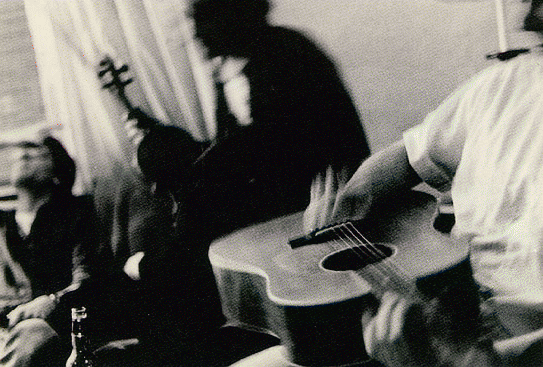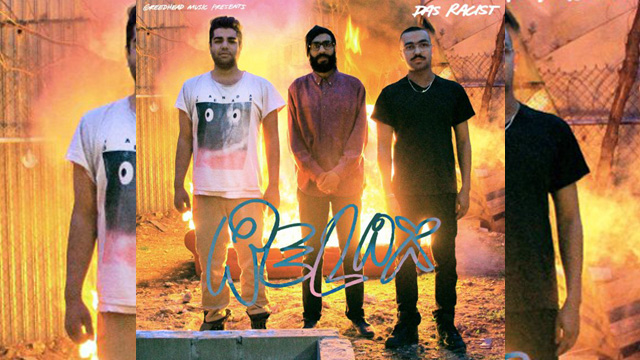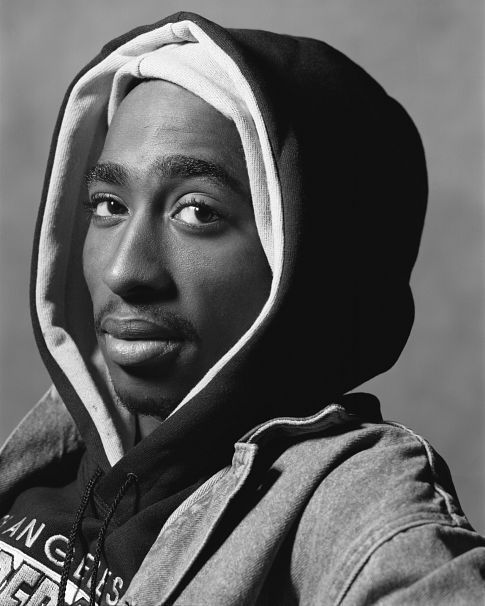A Retrospective on What Shaped My Views on Race – Part I
Wednesday, June 3rd, 2020Without recounting specific moments of my life, I would like to point to some people who have shaped how one white male’s perspective on race has landed where it currently is.
Here are some ideas/works/videos that shaped me in my earlier days as well as some current videos that have recently affected me.
James Baldwin was brilliant. I was lucky to read Notes of a Native Son and Nobody Knows My Name: More Notes of a Native Son while in college and, for obvious reasons, recently picked up his texts again.
“The country will not change until it reexamines itself and discovers what it really means by freedom. In the meantime, generations keep being born, bitterness is increased by incompetence, pride, and folly, and the world shrinks around us.
It is a terrible, an inexorable law that one cannot deny the humanity of another without diminishing one’s own: in the face of one’s victim, one sees oneself. Walk through the streets of Harlem and see what we, this nation, have become.”
“What it comes to, finally, is that the nation has spent a large part of its time and energy looking away from the principal facts of its life. This failure to look reality in the face diminishes a nation as it diminishes a person, and it can only be described as unmanly. And in exactly the same way that the South imagines that it ‘knows’ the Negro, the North imagines that it has set him free. Both camps are deluded. Human freedom is a complex, difficult –and private– thing. If we can liken life, for a moment, to a furnace, then freedom is the fire which burns away illusion. Any honest examination of the national life proves how far we are from the standard of human freedom with which we began. The recovery of this standard demands of everyone who loves this country a hard look at himself, for the greatest achievements must begin somewhere, and they always begin with the person. If we are not capable of this examination, we may yet become one of the most distinguished and monumental failures in the history of nations.”
— both excerpts are from Nobody Knows My Name: More Notes of a Native Son by James Baldwin 1961
Here’s a terrific 1965 debate between James Baldwin and William F. Buckley Jr. held at Cambridge University on the question: “Is the American Dream at the expense of the American Negro?”
It is an hour-long. Baldwin begins his argument around the 15-minute mark, Buckley begins his retort around minute-39.
The 1968 film adaptation of Lorraine Hansberry’s renowned play A Raisin in the Sun provides context as to how fleeting, or non-existent, opportunities were/are for minority households to improve their circumstances:
Continuing with the theater, Athol Fugard’s “Master Harold”… and the boys (the production premiered in 1982, but is set in 1950) is a powerfully-written play about a white South African boy and his relationship with black employees of his mother’s business and household who had a very active role in raising “Master Harold.”
The play illustrates the ugliness of racism and how it’s able to boil inside someone impressionable and become a privileged person’s last-ditch effort to clutch onto some backwards, convoluted form of ill-perceived superiority.
This scene from The Black Power Mixtape 1967-1975 had a profound effect on me. When asked by a foreign reporter about the Black Panthers’ violent measures, Angela Davis does a great job at explaining how her entire life has been encircled by state-sponsored violence.
Angela Davis echoes many points made by Malcolm X and if you’re not well-versed in his speeches and what he stood for, please take some time to deep dive his work.
Or, at minimum, enjoy Spike Lee’s direction and Denzel Washington’s portrayal as Malcolm X in the film by the same name (1992):
Speaking of Spike Lee, in 1999, at sixteen years-old, I first saw Do the Right Thing (1989).
To briefly summarize what the film is about– it follows Spike Lee’s character, “Mookie,” who works in an Italian-owned pizzeria in a predominantly black neighborhood in Brooklyn. Lee does an excellent job introducing the large, dynamic cast while positioning dominoes we all know are bound to fall. The film’s tragedy is initially brought on by civilian stubbornness, cemented by police brutality, and concludes with public rage.
Here are some thoughts from Roger Ebert’s book entitled The Great Movies about Do the Right Thing–
“Spike Lee had done an almost impossible thing. He’d made a movie about race in America that empathized with all the participants. He didn’t draw lines or take sides, but simply looked with sadness at one racial flashpoint that stood for many others.”
———[spoiler alert]———
“On and on, around and around, black and white, fear and suspicion breed and grow. Because we know all of the people [the characters] have spent all day on the street, we feel as much grief as anger. Radio Raheem is dead [video of that scene]. And Sal, who has watched the neighborhood’s kids grow up for twenty-five years and fed them with his pizza, stands in the ruins of his store. A pizzeria does not equal a human life, but its loss is great to Sal, because it represents a rejection of the meaning of his own life, and Spike Lee knows that–feels bad for Sal and gives him a touching final scene with Mookie in which the unspoken subtext might be: Why can’t we eat pizza, and raise our families, and run our businesses, and work at our jobs, and not let racism colonize our minds with suspicion?”
“None of these people are perfect. But Lee makes it possible for us to understand their feelings; his empathy is crucial to the film, because if you can’t try to understand how the other person feels, you’re captive inside the box yourself. Thoughtless people have accused Lee over the years of being an angry filmmaker. He has much to be angry about, but I don’t find it in his work. The wonder of Do the Right Thing is that he is so fair. Those who found this film an incitement to violence are saying much about themselves and nothing useful about the movie. Its predominate emotion is sadness.”
Spike Lee recycled the “Racist Rant” tool first used in Do the Right Thing once again in 25th Hour (2002).
Both implementations of this tool illustrate just how ugly conversations, perspectives, ideologies, etc. are when racism is the principal factor.
Since we’ve made it to Edward Norton, might as well give a nod to American History X (1998) and how that film depicts the philosophical circle of a white man who went from youthful optimism to a garden-variety prejudice that paved his way to becoming a leader of a hate group only to experience just how wrong and hypocritical organizations based on hate are.
This film completes this philosophical arc while exposing the dangers and fallacies of extreme beliefs + briefly touching on systemic racism:
John Singleton’s Boyz N’ The Hood (1991) was released a few years after Do the Right Thing as Hollywood discovered there was actually a market for heartfelt, thoughtful, and profound stories from a minority perspective instead of recycling the same blaxploitation films of the 70s and 80s.
Documentary filmmaking made giant strides in the 1990s. One of the most successful documentary films to date is Hoop Dreams (1994).
When I was in middle school, my brother returned home from Blockbuster with Hoop Dreams in hand. We watched it together and I remember thinking that, though it was slower than Hollywood productions, it was my first non-Ken Burns documentary and I could feel its importance.
Much like the two main focuses of the film –high school athletes Arthur Agee and William Gates– I also had dreams of becoming a professional athlete. That was the most obvious similarity as the differences between the circumstances surrounding these young men in inner-city Chicago and my suburban setting were stark. It injected perspective and gratitude in me at a young age.
Once again, here’s Ebert’s thoughts on Hoop Dreams:
“No screenwriter would dare write this story; it is drama and melodrama, packaged with outrage and moments that make you want to cry. Hoop Dreams (1994) has the form of a sports documentary, but along the way it becomes a revealing and heartbreaking story about life in America. When the filmmakers began, they planned to make a thirty-minute film about eighth graders being recruited from inner-city playgrounds to play for suburban schools. Their film eventually encompassed six years, involved 250 hours of footage, and found a reversal of fortunes the could not possibly have anticipated.”
“The sports stories develop headlong suspense, but the real heart of the film involves the scenes filmed in homes, playgrounds, and churches in the inner city.”
Speaking of sports documentaries and Ken Burns, Burns’s Jack Johnson: Unforgivable Blackness provided a look at the most celebrated African-American during the Jim Crow era:
Of course it’s easy to reference the many comedians who have absolutely nailed race and race relations in the United States. Names like Pryor, Murphy, Rock, Chappelle, and many others repeatedly create stand-up specials, bits, shows, movies, and so much more to add both levity and poignancy to our everyday dialogue.
With that in mind, allow me to bring up an often overlooked comic strip and subsequent animated series entitled The Boondocks. Aaron McGruder created the comic strip in 1996 and it was adapted for television in 2005. The Boondocks welcomed controversy and created outstanding criticism of popular black culture, black media (specifically BET), as well as all politics.
The series is definitely told from the perspective of someone who desperately wishes for everyone in our society to wake up, sharpen up, and become more proactive and resolute.
You’d need an awful lot of context, but the episode that poses the scenario of “what if Martin Luther King Jr. didn’t die from his assassination, but instead remained in a coma until he awoke thirty years later– how would the remainder of his life play out?” is a bitingly critical episode. And it still stays with me.
The entire episode is worth watching, but if you’re limited on time, here’s an animated two and a half minute speech delivered by a hypothetical Dr. MLK Jr. after being put through the grinder of contemporary society.
Of course, even though I saw this show a little late in my life, The Wire is exemplary in showing “the other side of the coin” than your stereotypical cops & robbers or generic Hollywood-stylized look at crime and the criminal justice system.
The Wire presents what life is like for those born into extremely difficult situations and it goes to great lengths, as far as following characters from public education system and onto how they end up in the streets, falling into a career/lifestyle of crime, or finding their way out.
It would be a mistake to not include this monumental TV show and its brilliant, sprawling, and realistic narrative ecosystem.
Last year, I resumed writing for this site by posting a review of The Last Black Man in San Francisco (2019).
The highlight/meat of that review:
“Though the film is about a man’s quest to reclaim what once belonged to his family, the film doesn’t linger too long or incessantly draw from the well of ‘gentrification as the villain.’ Sure, the film includes roles that are very much in line with illustrating just how shitty gentrification is, most obviously a very easy-to-dislike realtor as well as some malcontent techies, but TLBMiSF does an exceptional job of balancing gentrification themes with the challenges Jimmie and Monty, the two main characters, face within their own community.
This culminates in the third act when Jimmie declares that ‘people aren’t ONE thing’ which leads to Monty protesting moments later that [very loose paraphrasing here] ‘people are born into systems and walls. That these walls are what hold people back and that we all need to break through and break free from all the shit and uselessness we’re all born into.’
People are not one thing.
Regardless of circumstances, people should not blindly and willfully perpetuate exactly what they were born into.”
These are just a few examples of how African-Americans and their stories have shaped how I view race.
Even with all of the above, I have yet to even mention sports figures like Jackie Robinson, Bob Gibson, Muhammad Ali, Michael Jordan, and many others as well as the countless musicians –Duke Ellington, Charlie Parker, Billie Holiday, Thelonious Monk, Dizzy Gillespie, Miles Davis, Nina Simone, Max Roach, Charles Mingus, James Brown, Curtis Mayfield, Ray Charles, Sammy Davis Jr., Lightin’ Hopkins, Muddy Waters, Jimi Hendrix to name a few– who have also influenced me.
The point is– even if you are far removed from any type of diversity or meaningful relationship with someone outside your own race– race, and specifically African-American culture has been ever-present in the books we read, the music we listen to, the films we watch, the sports we participate in, and essentially most things Americans enjoy.
Though I’ve become more politically moderate as I’ve aged, I have difficulty understanding those that can’t see the obvious value and merit in the above perspectives.
For all of my lengthy chatter on the matter, please click on the link to see Langston Hughes succinctly hit the nail on the head in his short poem “Theme for English B.”
Onto what is presently in front of every American.
The 10-minute video of George Floyd’s death.
The video is harrowing.
With a knee on Floyd’s neck and hands deep in his pockets, Officer Chauvin displays a cruel nonchalance and unaffectedness that I’ve never previously seen. No novel, no film has depicted such callousness for human life.
The American public has seen videos such as the billy clubbed abuse administered to Rodney King, a fatally choked out Eric Garner, tragic shootings of far too many–and all of those videos are damning of law enforcement– yet the footage of George Floyd’s death shows an officer so calm and deliberate while ending a citizen’s life.
This isn’t an insecure and frightened cop incorrectly assuming that someone he pulled over may be drawing a firearm (which isn’t forgivable/excusable but a least it doesn’t seem calculated– rather, it fits the actions of one who is easily frightened and doesn’t have the stomach for law enforcement), this is an officer who relentlessly and unmercifully positions his bodyweight and knee on the neck of a man for nearly nine minutes as the victim pleads sixteen times for air before tragically taking his final painful breaths.
Like with any situation involving law enforcement (and I mean any situation– from the most innocuous traffic ticket to a complex conspiracy investigation), there are questions. It’s been reported that the cops were originally called by a convenience store employee because Mr. Floyd allegedly attempted to use a counterfeit $20 dollar bill to pay for cigarettes.
Officer Chauvin is unfazed and unconcerned. This is speculation, but it seems as though Chauvin’s attitude is #1 – he, Floyd, shouldn’t have used (or allegedly used) counterfeit money, #2 – he should have cooperated, followed commands, and peacefully entered the squad car, and #3 – since he didn’t peacefully submit to entering the squad car, Chauvin is going to pin him to the ground until the medics arrive.
In a very, very loose world (or in the America depicted in most of the works above– John Singleton’s Boyz N The Hood, Spike Lee’s many films, James Baldwin’s America, etc), maybe this type of thought process and interpretation of what happened might hold water in a court of law. But the videos obviously show, beyond a shadow of any doubt, that the methods used were so extreme, needless, cruel, and without regard for human life.
And now the country is in the understandable state that it is in.
I admittedly haven’t spent a ton of time researching and analyzing all the different types of protests, marches, demonstrations, and unfortunate riots. That acknowledged, there does seem to be a mixed bag of peaceful protests/demonstrations as well as destructive riots.
I’m uncomfortable even attempting to judge what constitutes an “acceptable/understandable” riot or release valve for a distressed community and differentiating that with what appears to be bored kids trying to get away with playing the role of malcontent anarchists.
It seems as though Mayor Keisha Lance Bottoms of Atlanta has had enough of kids “playing” the part of civil justice soldiers and participating in this summer’s riots as though they were attending a music festival.
(Please watched the hyperlinked video if you haven’t already. That video is unable to be embedded).
Here’s another intelligent woman in Harlem fed up with rioters who seem to suffer more from FOMO than grief, anger, or rage with societal injustice (explicit language).
One of the more appropriate things I’ve seen shared on social media was an updated repost of Juxtapoz’s write up on Arthur Jafa’s short film entitled Love Is The Message, The Message Is Death.
I remember when this originally came out in 2017. It was powerful then; it’s powerful now. The film moves through seven-plus minutes of representations of Black America and pairs it with the Kanye West gospel track, “Ultralight Beam”.
One can’t help but feel those images. Juxtapoz accurately labels the piece as “bodies in various states of elation and despair.” Accurate.
Being swung in and around this time machine through Black America is nothing if not emotional.
Clearly, we have an enormous problem. Even if you’re a staunch conservative, here’s George W. Bush’s statement admitting as much.
Now comes the hard part, what to do about it?
That will be a more difficult post to write, but it’s forthcoming.










